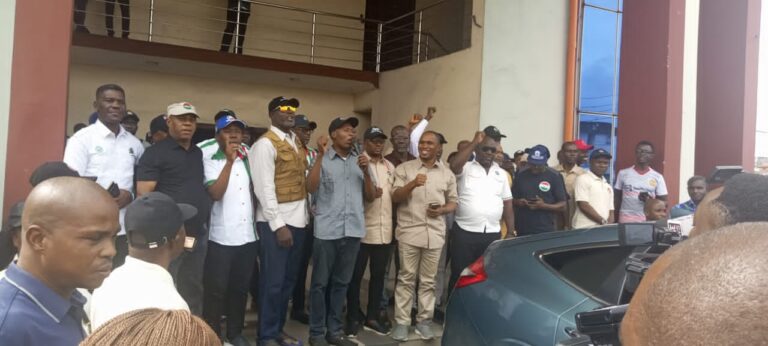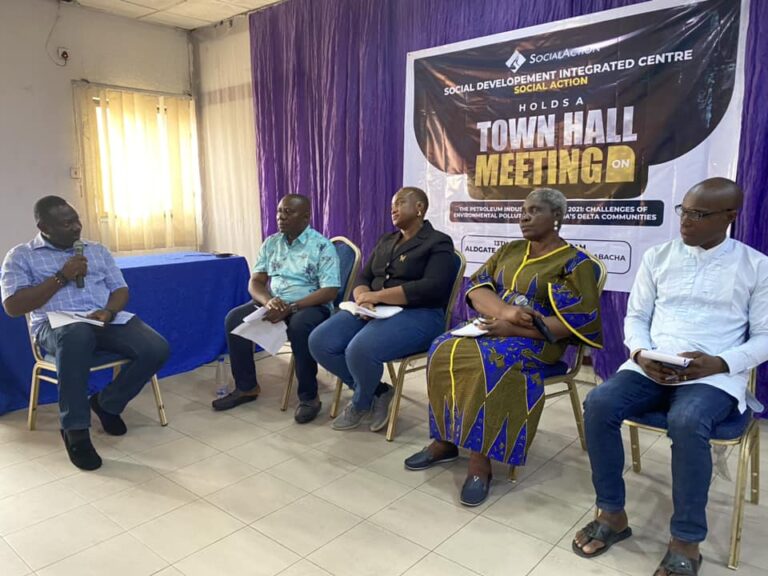Social Action Raises Concerns Over Presidential Palliatives Amidst Fuel Subsidy Removal
President Bol Ahmed Tinubu’s recent palliatives and emergency economic measures, introduced to counteract the impact of premium motor spirit (petrol) subsidy removal, have faced criticism from Social Action. During a guest appearance on Super 93.3 FM in Port Harcourt on the 1st of August 2023, the Communications Coordinator, Mr. Peter Mazzi expressed reservations about the President’s approach.
Mazzi highlighted the absence of any reference to the state of moribund state-owned refineries or plans for local refining of petroleum products. He questioned the continued reliance on imports despite the abundant natural resources within the country’s soil. This, he suggested, pointed to a lack of capacity and political will to revitalize the refineries, at the expense of citizens’ wellbeing, for the benefit of select interests.
Furthermore, Mazzi contested the President’s claim of saving $1 million dollars within a month, asserting that past subsidy payments had not been covered by government revenue. Rather, funds had been borrowed from the Central Bank or external sources. This viewpoint was supported by Mele Kyari, the Group Chief Executive Officer of NNPC Limited, who revealed that the Federal Government owed the corporation over $6 billion (equivalent to N2.8 trillion).
While acknowledging that the citizens are going through a rough patch, he opined that giving out handouts in the name of palliatives will not impact on the lives of the people. He recalled similar schemes and policies implemented by the Buhari-led APC administration and how the resources ended up in the control of politicians who decided to horde them for selfish purposes.
“The people have lost confidence on the politicians and their ability and will to equitably distribute resources and effectual meant for the people without subverting process for selfish or political consideration”, he said.
Mazzi called on the government to prioritize transparency in its policies and focus on restoring and reactivating the nation’s four state-owned refineries. This, he emphasized, would bolster local production, reduce foreign exchange outflows, and alleviate pressure on the Naira. As the debate over the subsidy removal continues, Scoial Action urges a sincere evaluation of policies and a commitment to enhancing domestic refining capabilities.”




